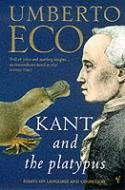

Дата отгрузки на данный момент неизвестна.
Товар закончился у основного поставщика, и, после получения заказа от вас, мы закажем его у других поставщиков. Мы не можем гарантировать выполнение данного заказа, поэтому настоятельно не рекомендуем заказывать данный товар, используя предоплату (банковский перевод и т.п.). Заказ на такой товар действителен в течение 3 недель (если в течение 3 недель товар не придет, заказ будет отменен). Однако, это не означает, что товар нельзя заказать вновь, поскольку в некоторых случаях возможны и более поздние поставки.
Технические характеристики
How we know that a cat is a cat is a nice philosophical poser, and has been since the time of Plato. Why we should all agree on calling the animal a cat is equally interesting, yet it throws up the problem that lies at the heart of all modern philosophy: how much do our perceptions of things depend on our cognitive ability, and how much on our linguistic resources? Where, and how, do these two questions meet? Having decided against a systematic treatment of his subject, Umberto Eco undertakes a series of idiosyncratic and typically brilliant explorations, starting from the perceived data of common sense, from which flow an abundance of "stories" or fables, often with animals as protagonists, to expound a clear critique of Kant, Heidegger and Peirce. And, as a beast designed specifically to throw spanners in the works of cognitive theory, the duckbilled platypus naturally takes centre stage.